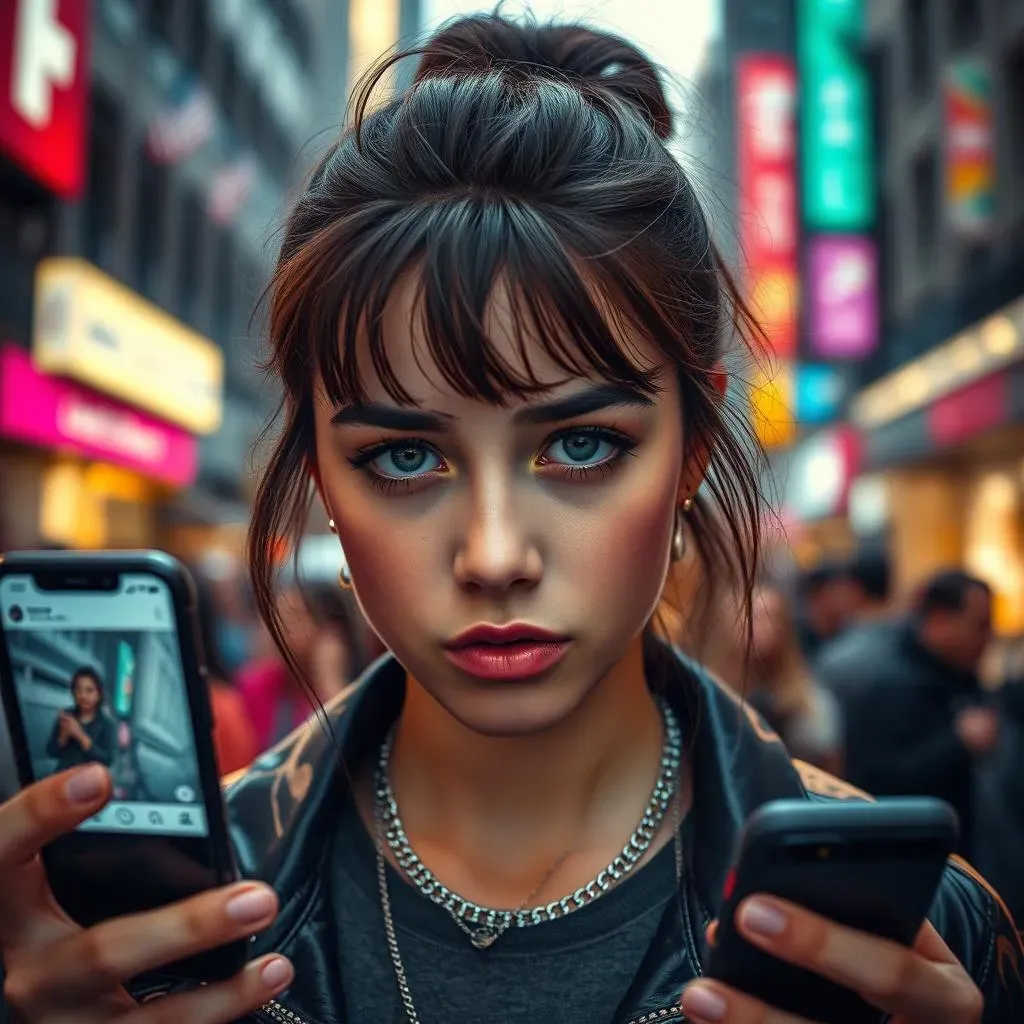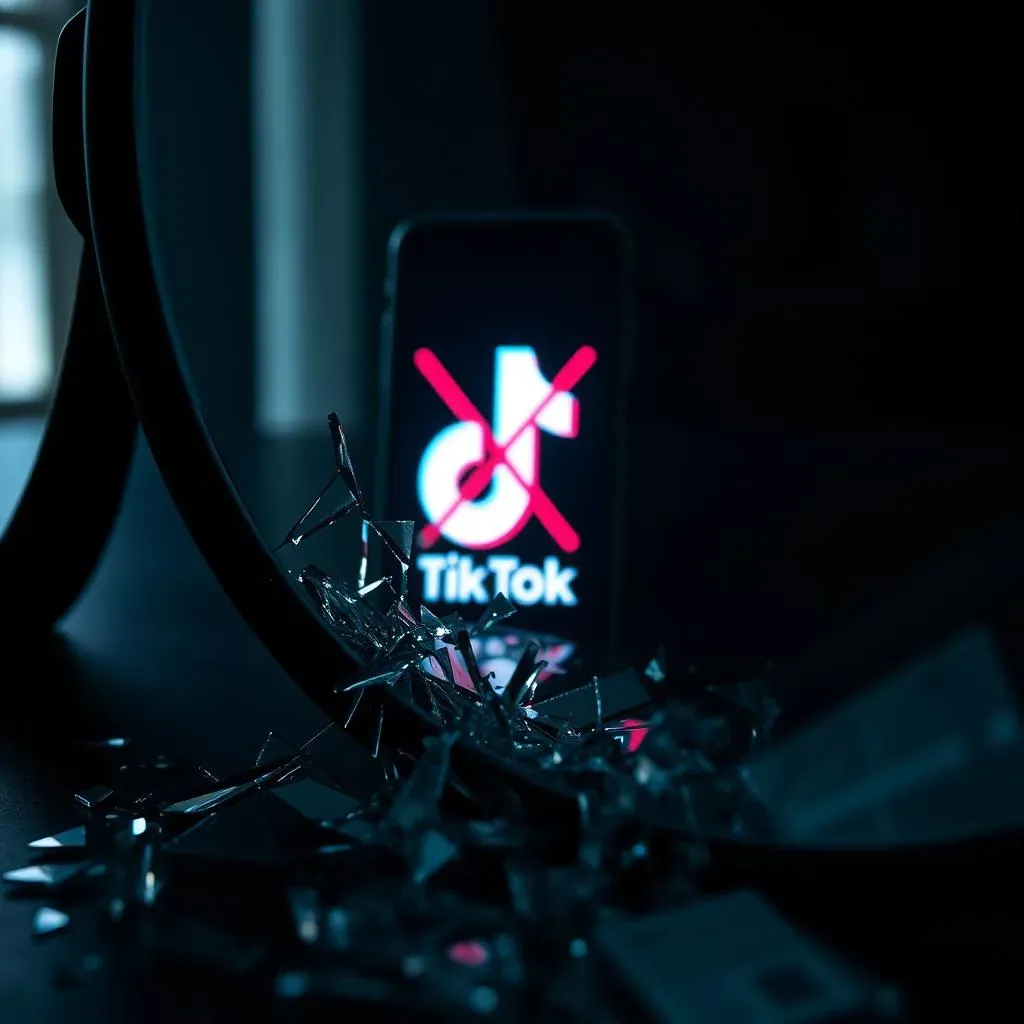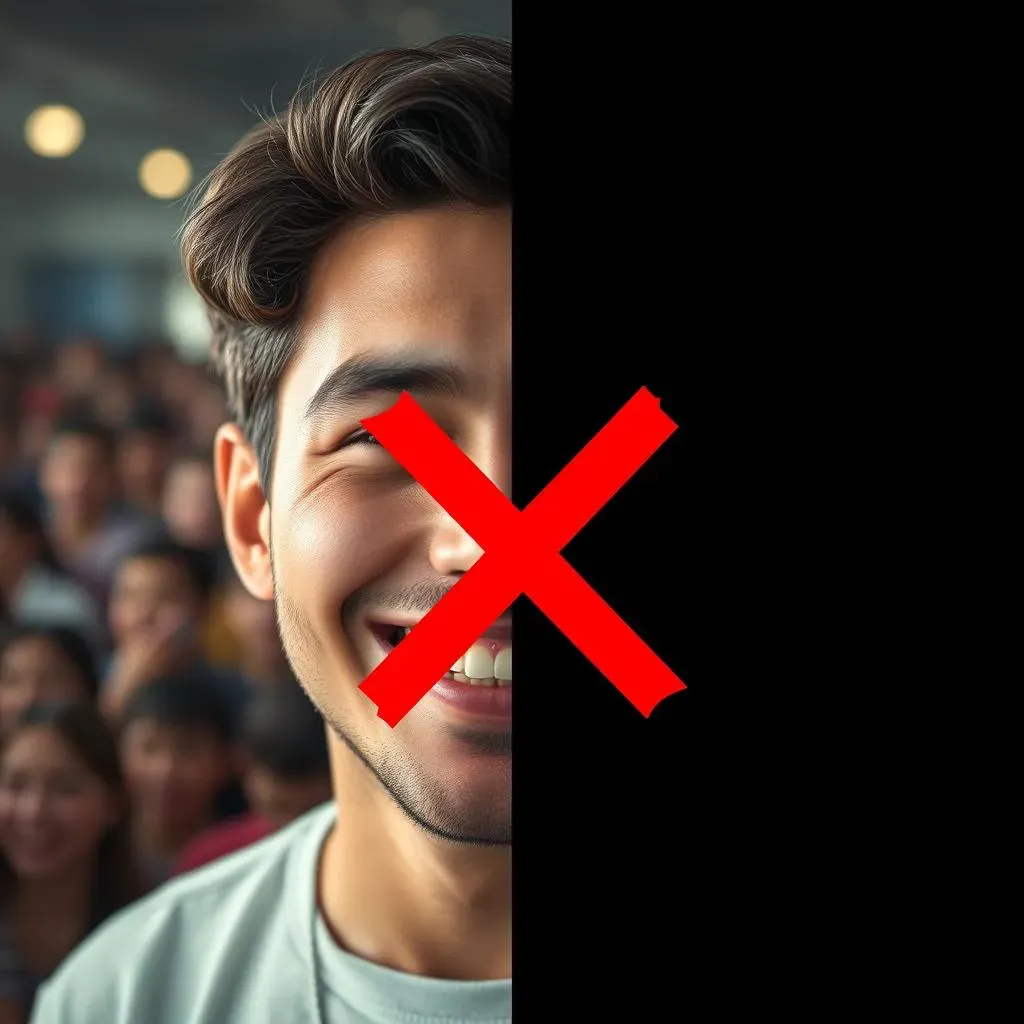Table of Contents
Welcome to a deep dive into the captivating, and often chaotic, world of TikTok stars. The platform, known for its viral trends and entertaining content, has also become a breeding ground for controversy. From minor missteps to major scandals, the lives of TikTok's biggest names are frequently under intense scrutiny. This article, "TikTok stars controversies explained," will explore the most significant controversies that have rocked the platform, examining the actions of influential creators and the impact these events have had on their careers, their followers, and the broader social media landscape. We'll investigate the reasons behind these controversies, discussing the pressures of fame, the ethical considerations of online content creation, and the role of social media algorithms in amplifying both positive and negative behaviors. Prepare to uncover the truth behind the headlines, and discover how these controversies shape our understanding of online celebrity and the ever-evolving world of social media.
Understanding TikTok Stars and Their Controversies

Understanding TikTok Stars and Their Controversies
The Rise of TikTok Influencers
TikTok's unique algorithm and short-form video format have created a breeding ground for viral fame. Anyone, from a teenager dancing in their bedroom to a seasoned performer, can potentially become a star overnight. This ease of access has democratized the entertainment industry, allowing individuals from diverse backgrounds and with varied skill sets to build massive followings. However, this rapid rise to fame comes with its own set of challenges and pitfalls. The pressure to constantly create engaging content, the scrutiny of a vast online audience, and the lure of brand deals and sponsorships can create a potent mix that can lead to missteps and controversies.
The fast-paced nature of the platform also means that trends and personalities can change incredibly quickly. What's popular today might be forgotten tomorrow, leaving creators constantly striving to stay relevant and avoid becoming irrelevant. This pressure to maintain momentum can lead to desperate measures, pushing some creators to engage in questionable behavior for attention and engagement. The line between harmless fun and problematic content can become blurred, especially for younger creators who lack experience navigating the complexities of the digital world.
Factor | Impact on TikTok Stars |
|---|---|
Algorithm | Amplifies popular content, regardless of quality or ethics. |
Fast-paced trends | Creates pressure for constant content creation, potentially leading to risky behavior. |
Public scrutiny | Intense online pressure can negatively impact mental health and decision-making. |
Understanding the Roots of Controversy
Many TikTok controversies stem from a lack of understanding about online responsibility and the potential consequences of actions taken in the digital space. For young creators, particularly, the experience can feel like a game, blurring the lines between reality and the virtual world. The anonymity afforded by the internet can embolden some individuals to engage in behavior they wouldn't consider in real life. The lack of immediate, tangible consequences can also contribute to a sense of impunity. Moreover, the constant pursuit of virality can lead to creators prioritizing engagement over ethical considerations.
Another significant factor is the influence of external pressures. The desire for brand deals, sponsorships, and collaborations can incentivize creators to compromise their values or engage in behaviors that might be considered controversial. The pressure to maintain a positive public image, even when facing criticism, can lead to attempts at damage control that often backfire, further escalating the situation. Understanding these underlying factors is crucial to analyzing and interpreting the controversies that unfold on the platform.
- Lack of online responsibility education
- Anonymity and perceived lack of consequences
- Pressure to create viral content
- Influence of brand deals and sponsorships
- Desire to maintain a positive public image
HighProfile TikTok Stars and Their Scandals: A Deep Dive

HighProfile TikTok Stars and Their Scandals: A Deep Dive
High-Profile Cases: The Fallout of Fame
Let's face it, some TikTok stars have spectacularly imploded. The pressure cooker of instant fame, coupled with the lack of real-world experience in handling criticism, has led to some truly cringe-worthy moments. We've seen influencers caught in lies, facing accusations of everything from plagiarism to far more serious offenses. The public nature of their lives means every misstep is magnified, often leading to a swift and brutal backlash. The speed at which these stars rise and, sometimes, fall is a testament to both the power and the fragility of online fame.
Think about the cases that have made headlines: the influencer caught faking a robbery for clout, the one who made insensitive remarks that triggered widespread outrage, or the star whose carefully constructed persona crumbled under the weight of exposed hypocrisy. These aren't isolated incidents; they're cautionary tales highlighting the dangers of unchecked ambition and the importance of ethical considerations in online content creation. The consequences can be devastating, both professionally and personally.
TikTok Star | Controversy | Outcome |
|---|---|---|
[Example Star 1] | [Type of Controversy] | [Result - e.g., loss of followers, brand deals cancelled] |
[Example Star 2] | [Type of Controversy] | [Result - e.g., public apology, career damage] |
The Dark Side of Virality: When Things Go Wrong
The relentless pursuit of virality can lead creators down a dark path. Some individuals, desperate for attention, engage in increasingly risky or controversial behavior, pushing boundaries and disregarding the potential consequences. The algorithms that fuel TikTok's popularity often reward shocking or provocative content, creating a feedback loop that incentivizes this type of behavior. This can lead to a dangerous cycle where creators feel compelled to escalate their actions to maintain their relevance and engagement levels.
It's a slippery slope. What starts as a harmless attempt at attention-grabbing can quickly spiral into something far more serious. We've seen examples of creators engaging in dangerous stunts, spreading misinformation, or behaving in ways that are harmful or offensive. The long-term repercussions can be significant, not only for the creators themselves, but also for their followers who may be influenced by their actions. The platform's responsibility in moderating this type of content is a crucial aspect of this ongoing discussion.
- Dangerous stunts and challenges
- Spread of misinformation and harmful content
- Offensive or discriminatory behavior
- Cyberbullying and online harassment
Analyzing the Impact: Lessons Learned
The controversies surrounding high-profile TikTok stars provide valuable lessons for both creators and the platform itself. These incidents highlight the need for increased media literacy, critical thinking skills, and a stronger emphasis on ethical online behavior. Creators need to understand the potential consequences of their actions, while the platform must take a more proactive role in moderating content and protecting its users from harmful or misleading information. The responsibility for creating a safe and positive online environment rests on multiple shoulders.
Ultimately, the goal is to foster a culture of responsible content creation and consumption. This requires a collaborative effort from creators, platforms, and users alike. By learning from past mistakes and engaging in open dialogue, we can work towards a more positive and sustainable future for social media. The controversies surrounding TikTok stars serve as a stark reminder that with great influence comes great responsibility, and the digital world is no exception.
The Impact of TikTok Controversies on the Platform and its Users

The Impact of TikTok Controversies on the Platform and its Users
Brand Reputations and Financial Losses
When TikTok stars get embroiled in controversy, the fallout isn't limited to their personal lives. Brands that have partnered with these influencers often suffer collateral damage. Sponsorships are cancelled, marketing campaigns are pulled, and brand reputations take a hit. The association with a controversial figure can taint a company's image, alienating customers and impacting its bottom line. This risk is a significant factor for brands considering partnerships with TikTok stars, leading to increased due diligence and a more cautious approach to influencer marketing. The financial implications can be substantial, forcing companies to reassess their strategies and potentially lose significant investment.
The speed at which these situations can escalate is remarkable. One day, a brand is enjoying a successful campaign featuring a popular TikTok star; the next, they're scrambling to distance themselves from a public relations nightmare. The unpredictable nature of online controversies makes influencer marketing a high-stakes game. It's a constant balancing act between leveraging the reach and engagement of these influencers and mitigating the risks associated with their potentially volatile public image. A thorough vetting process and crisis management plan are essential for brands navigating this landscape.
Impact | Example |
|---|---|
Cancelled sponsorships | Brand pulls campaign after influencer's offensive tweet. |
Damaged brand reputation | Company loses customers due to association with controversial star. |
Financial losses | Significant investment lost due to campaign failure. |
Platform Responsibility and Content Moderation
TikTok's role in managing controversies surrounding its creators is a complex and constantly evolving issue. As a platform with billions of users, TikTok faces immense pressure to balance freedom of expression with the need to protect its users from harmful content. The challenge lies in finding the right balance between allowing creators to express themselves and preventing the spread of misinformation, hate speech, and other forms of harmful content. This requires sophisticated content moderation systems and a clear set of community guidelines that are consistently enforced.
The platform's response to controversies often determines how users perceive its commitment to responsible content moderation. Swift and decisive action can demonstrate a commitment to creating a safe and positive online environment, while inaction or a slow response can damage the platform's credibility and trust. Striking a balance between promoting free speech and safeguarding user well-being is an ongoing challenge for TikTok and other social media platforms. Open communication with users and a willingness to adapt to evolving challenges are key to navigating this complex landscape.
- Challenges in content moderation at scale
- Balancing freedom of expression with user safety
- Impact of algorithmic amplification of controversial content
- Importance of transparent community guidelines
- Need for consistent and fair enforcement of rules
Navigating the Complexities: TikTok Stars Controversies Explained

Navigating the Complexities: TikTok Stars Controversies Explained
Understanding the Nuances of Online Accountability
So, you're diving into the wild world of TikTok controversies? It's a fascinating, and often messy, area. One of the key things to remember is that online accountability is different from real-world accountability. There's a disconnect between the perceived consequences of actions taken online and the actual impact they have. For example, a controversial statement made on TikTok might lead to a temporary loss of followers, brand deals might be canceled, but it rarely results in the same kind of legal or social repercussions as a similar action in the offline world. This discrepancy is a major factor in understanding why some TikTok stars engage in risky behavior.
Furthermore, the speed at which information spreads online exacerbates the situation. A single misstep can go viral in minutes, leading to a massive public backlash before the creator even has a chance to respond. This fast-paced environment creates immense pressure, leading some creators to make impulsive decisions that they later regret. The lack of time for reflection and careful consideration contributes to the escalation of many controversies.
Aspect | Impact on Controversy |
|---|---|
Online vs. Offline Accountability | Reduced consequences for online actions. |
Speed of Information Spread | Rapid escalation of controversies. |
Pressure for Immediate Response | Impulsive decisions and regrettable actions. |
The Role of Algorithms and Platform Responsibility
Let's not forget the algorithms that drive TikTok's popularity. These algorithms are designed to maximize engagement, often prioritizing sensational or controversial content. This creates a feedback loop: the more controversial the content, the more views and engagement it receives, which in turn encourages more controversial content. It's a self-perpetuating cycle that TikTok needs to actively manage. The platform itself bears significant responsibility for the controversies that unfold on its platform. It needs to develop and implement effective content moderation strategies that balance freedom of expression with the need to protect its users from harmful or misleading information.
This isn't just about removing offensive content; it's about proactively addressing the underlying issues that contribute to controversies. TikTok needs to invest in education and resources to help creators understand their responsibilities and the potential consequences of their actions. It also needs to be transparent about its content moderation policies and processes, building trust with its users. This is a complex challenge, but one that is crucial to the platform's long-term sustainability and its ability to foster a safe and positive online community.
- Algorithmic amplification of controversial content
- Need for proactive content moderation strategies
- Importance of educating creators about online responsibility
- Transparency in content moderation policies
- Building trust with users through open communication
Looking Ahead: A More Nuanced Understanding
Navigating the complexities of TikTok star controversies requires a nuanced understanding of the platform's mechanics, the pressures faced by creators, and the role of the audience. It's not simply a matter of pointing fingers and assigning blame; it's about recognizing the interplay of various factors that contribute to these situations. We need to move beyond simplistic narratives and engage in a more critical analysis of the issues at hand. This includes examining the role of media literacy, the impact of social media on mental health, and the ethical implications of online fame.
Ultimately, understanding these controversies is not just about entertainment; it's about understanding the broader implications of social media in our lives. It's about how we consume information, how we interact with online personalities, and how we hold individuals accountable for their actions in the digital sphere. It's a conversation that is constantly evolving, and one that requires ongoing dialogue and critical engagement from all stakeholders.